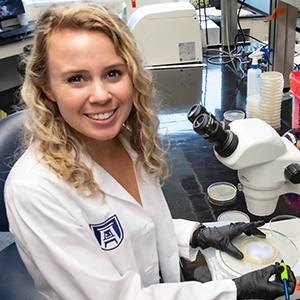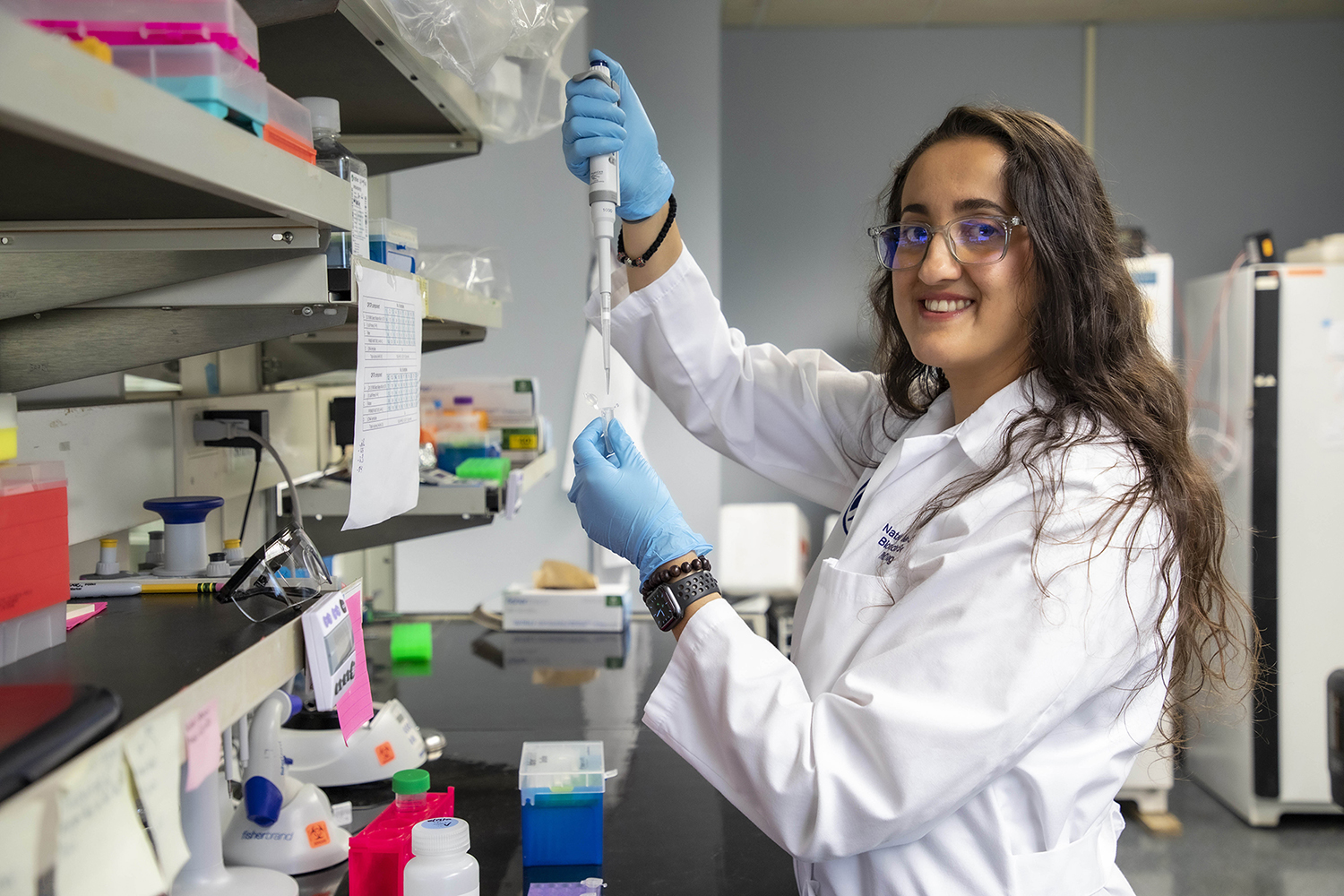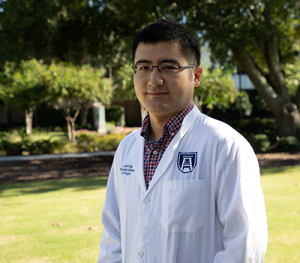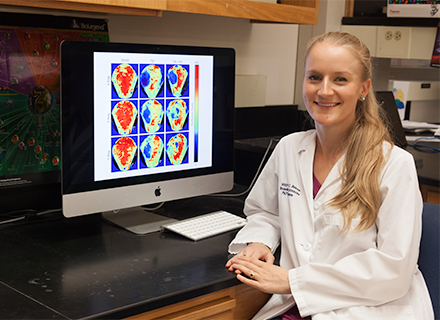

In the Biomedical Science Ph.D. program, we are taught by world-leader researchers and provided with phenomenal resources and the latest, high-end facilities/cores.
What is your Favorite AU memory? By Far, my favorite AU memory is the day I passed my oral qualification exam. Knowing that my hard work paid off and didn’t go unnoticed makes me proud of all the effort and time I put into my studies.

"My mentor, Dr. Quanguang Zhang, has been an amazing mentor. He encourages me to work and think independently but also provides me with helpful guidance. Laboratory training in Dr. Zhang’s lab has helped me develop necessary research skills including the ability to design experiments, propose a research project, prepare and submit grants."

"My PI, Dr. Dhandapani, has been an amazing mentor. He allows me the independence to figure things out on my own but is also always available to brainstorm, give me input, and provide guidance. I am interested in pursuing a career in academic research so my mentor and I often discuss the processes involved in securing funding, preparing and submitting grants, and how to go about designing experiments and planning projects."